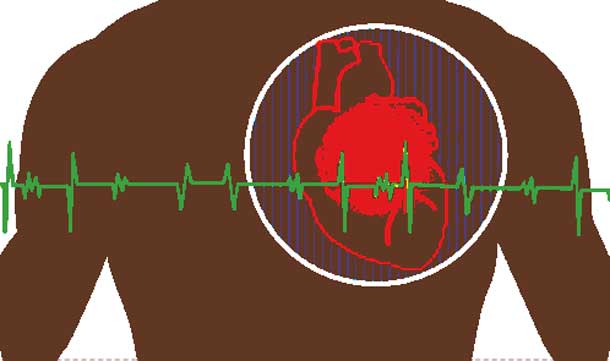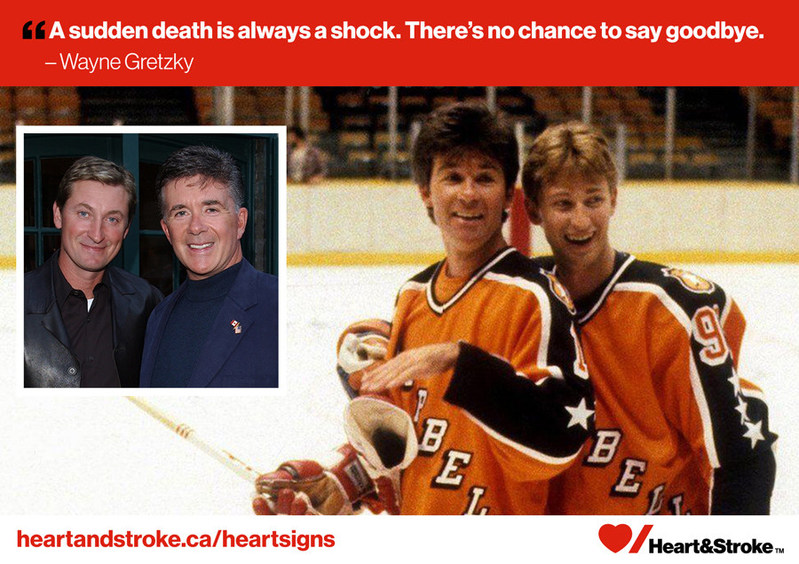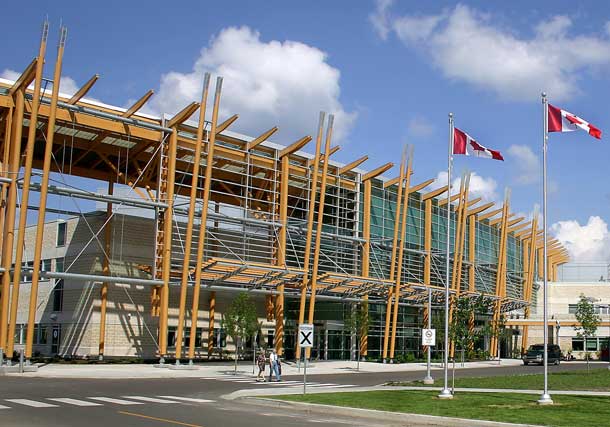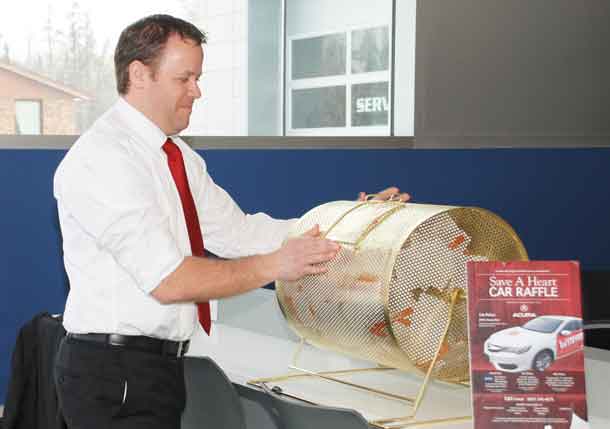Increased risk of cardiac deaths during the holidays prompts Heart & Stroke to launch holiday awareness campaign
TORONTO – HEALTH – It’s coming up on a year since beloved Canadian actor Alan Thicke died from a ruptured aorta while playing hockey with his youngest son, Carter. The shock of this sudden death was felt deeply by Canadians including Alan’s long-time friend, hockey legend Wayne Gretzky.
“Janet and I were shocked and deeply saddened to hear of Alan’s death,” said Gretzky shortly after learning of Thicke’s passing. “He was a wonderful man and an amazing father, husband, and friend. He loved all sports and in particular the game of hockey. He will be missed by all of us.”
“Research shows an increase in cardiac events and deaths during the holidays,” says cardiologist Dr. Chi Ming Chow, Heart & Stroke spokesperson. “The culprits include stress, not just emotional but also physical like snow-shoveling, over-indulgence of food and in particular of alcohol which can raise blood pressure. In addition, the cold weather overall has been shown to increase blood pressure, a leading risk factor for heart attacks.”
Another reason for the increase during the holidays may have been uncovered by a recent study in Melbourne, Australia, where it’s summer in December. The study aimed to remove the winter variable with its added risk of flus and other illnesses and showed an increase in cardiac deaths between Christmas Day and January 7. “Inappropriate delay in seeking medical care may be the cause for this. People travel away from their regular medical facility, or they ignore symptoms so as not to cause a fuss during festive events, even misdiagnosing them as indigestion,” says Dr. Chow.
Wayne Gretzky has added his voice to Heart & Stroke’s holiday campaign to remind everyone in Canada to be extra vigilant of their heart health during the holidays. “The sudden death of a friend is always a shock, and particularly difficult for families during the holiday time,” adds Gretzky. “Everyone should know the emergency signs and call 9-1-1 if they’re experiencing cardiac distress.”
“While we don’t know exactly what caused Thicke’s ruptured aorta, it can lead to heart failure,” adds Dr. Chow. “Conditions like high blood pressure and atherosclerosis can contribute to both ruptured aortas and heart attacks, and the signs are often similar, including chest pain and nausea.”
Signs of a Heart Attack:
- Chest Discomfort – Pressure, squeezing, fullness or pain, burning or heaviness
- Sweating
- Upper Body Discomfort – Neck, jaw, shoulders, arms back
- Nausea
- Shortness of breath
- Light-headedness
Signs may vary from person to person. They may not always be sudden or severe. Recognize the signs and act right away. For more information on emergency signs and what to do go to: www.heartandstroke.ca/heart/emergency-signs.
About Heart & Stroke
Life. We don’t want you to miss it. That’s why Heart & Stroke leads the fight against heart disease and stroke. We must generate the next medical breakthroughs, so Canadians don’t miss out on precious moments. Together, we are working to prevent disease, save lives and promote recovery through research, health promotion and public policy.







